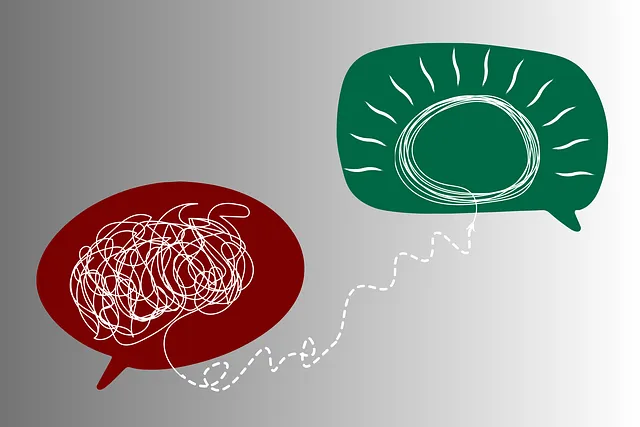Crisis intervention is vital for individuals facing severe emotional distress, with prompt services like those offered by Kaiser Lone Tree improving short-term well-being and long-term recovery. Accessing these services requires understanding eligibility and taking initial steps, such as recognizing when help is needed and reaching out via phone or online platforms. Assessment of crises, effective communication strategies, and ongoing support post-crisis are key components for successful intervention. Learn how to get mental health services through Kaiser Lone Tree today for optimal support.
“In times of crisis, effective intervention can make a profound difference in an individual’s life. This article guides you through essential strategies for navigating mental health crises, emphasizing practical steps towards better support systems. We explore how to access specialized services, from understanding the significance of crisis intervention to mastering communication techniques.
Learn about identifying distress signals and assessing crisis levels, crucial for professionals and individuals alike. Additionally, discover post-crisis support measures and follow-up strategies to foster resilience, with a focus on Kaiser Lone Tree Services and how to utilize their mental health resources.”
- Understanding Crisis Intervention: A Definition and Importance
- Accessing Kaiser Lone Tree Services: Eligibility and Initial Steps
- Assessing the Situation: Identifying Signs and Levels of Crisis
- Effective Communication Strategies for Professionals and Individuals
- Post-Crisis Support: Follow-up and Preventive Measures
Understanding Crisis Intervention: A Definition and Importance

Crisis intervention is a critical process aimed at providing immediate support and guidance to individuals facing severe emotional distress or challenging situations. It involves a range of strategies and techniques to help people cope, stabilize, and move forward during crises. When someone experiences a mental health crisis, such as intense anxiety, depression, or suicidal thoughts, prompt intervention can make a significant difference in their short-term well-being and long-term recovery.
Understanding the importance of early intervention is key. According to experts, accessing mental health services promptly, like those offered by Kaiser Lone Tree, can be life-saving. These services often include professional counseling, therapy, and guidance tailored to the individual’s needs. By learning effective crisis intervention strategies, whether through self-care practices, social skills training, or self-esteem improvement techniques, individuals and support networks can empower themselves and others during challenging times.
Accessing Kaiser Lone Tree Services: Eligibility and Initial Steps

Accessing Kaiser Lone Tree Services, an excellent resource for mental health support, involves understanding eligibility criteria and taking initial steps. If you are a Kaiser member, this service is designed for individuals experiencing a crisis or severe emotional distress. Eligibility extends to those who require immediate attention and fall within the scope of services covered by their insurance plan. The first step is to recognize when professional help is needed—a crucial aspect of Mental Health Awareness.
When faced with a mental health crisis, don’t hesitate to reach out. You can contact Kaiser Lone Tree via phone or online platforms. During your initial interaction, provide detailed information about your situation, and the assessment team will guide you through the process. This initial step is vital in reducing the stigma associated with mental illness, as it encourages open communication and prompts individuals to prioritize their well-being. Effective risk management planning for mental health professionals further ensures a safe and supportive environment for clients seeking these services.
Assessing the Situation: Identifying Signs and Levels of Crisis

Assessing a situation to identify signs and levels of crisis is a critical step in providing effective crisis intervention. It involves understanding that crises can manifest differently across various aspects of an individual’s life, including emotional, physical, and psychological well-being. By recognizing these indicators, one can determine the urgency and nature of the crisis. For instance, while someone experiencing severe depression might exhibit signs like persistent sadness, loss of interest in activities, or thoughts of self-harm, a person dealing with an acute stress reaction could show symptoms such as rapid heartbeat, shortness of breath, or overwhelming anxiety.
When it comes to accessing mental health services, Kaiser Lone Tree offers comprehensive guidance and support. Individuals can reach out to their primary care providers who can refer them to specialized mental health professionals for assessment and treatment. Additionally, engaging in regular Mental Wellness Journaling Exercise Guidance or participating in a Mental Wellness Podcast Series Production can be proactive steps towards managing stress and preventing burnout. These tools provide individuals with resources to identify triggers, develop coping strategies, and maintain a healthy balance in their lives, thereby reducing the risk of reaching crisis levels.
Effective Communication Strategies for Professionals and Individuals

Effective communication is a cornerstone of crisis intervention, offering a lifeline to those in distress. For professionals and individuals alike, understanding how to convey empathy, active listening, and clear information can make all the difference. In the context of accessing mental health services through Kaiser Lone Tree, simple yet powerful strategies come into play.
One key approach is adopting an open-ended questioning style to encourage clients to share their experiences and concerns freely. This not only helps in gathering essential details but also demonstrates a willingness to listen without judgment. Additionally, professionals should be adept at normalizing the client’s feelings, validating their emotions, and providing reassurance, especially when they may feel isolated or stigmatized. Incorporating techniques like Mindfulness Meditation, as part of a broader Mental Wellness Coaching Program Development, can enhance these interactions by promoting calmness and better emotional regulation in both the provider and the recipient. Through these communication strategies, individuals seeking mental health services through Kaiser Lone Tree can be guided towards effective support and recovery.
Post-Crisis Support: Follow-up and Preventive Measures

After a crisis passes, providing ongoing support and implementing preventive measures are crucial steps in the recovery process. Individuals who have experienced a traumatic event often require long-term care to manage their mental health effectively. One way to facilitate this is by encouraging access to mental health services, such as those offered by Kaiser Lone Tree. These services play a vital role in helping individuals navigate the aftermath of a crisis and fostering resilience.
To enhance post-crisis support, developing a self-care routine can significantly contribute to better mental well-being. This includes practices like mindfulness exercises, regular physical activity, and maintaining a balanced diet—all of which are known to reduce anxiety symptoms and boost self-esteem. By combining professional guidance with personal initiatives, individuals can actively participate in their recovery journey and build coping mechanisms for future challenges.
In navigating crisis situations, understanding and implementing effective intervention strategies are paramount. This article has provided a comprehensive guide, from recognizing signs of distress to post-crisis support, empowering individuals and professionals alike. For those seeking mental health services through Kaiser Lone Tree, the first step is often the most challenging—but with the right guidance, accessing resources becomes a beacon of hope. By combining assessment skills with empathetic communication, we can foster healing and resilience in times of crisis.






